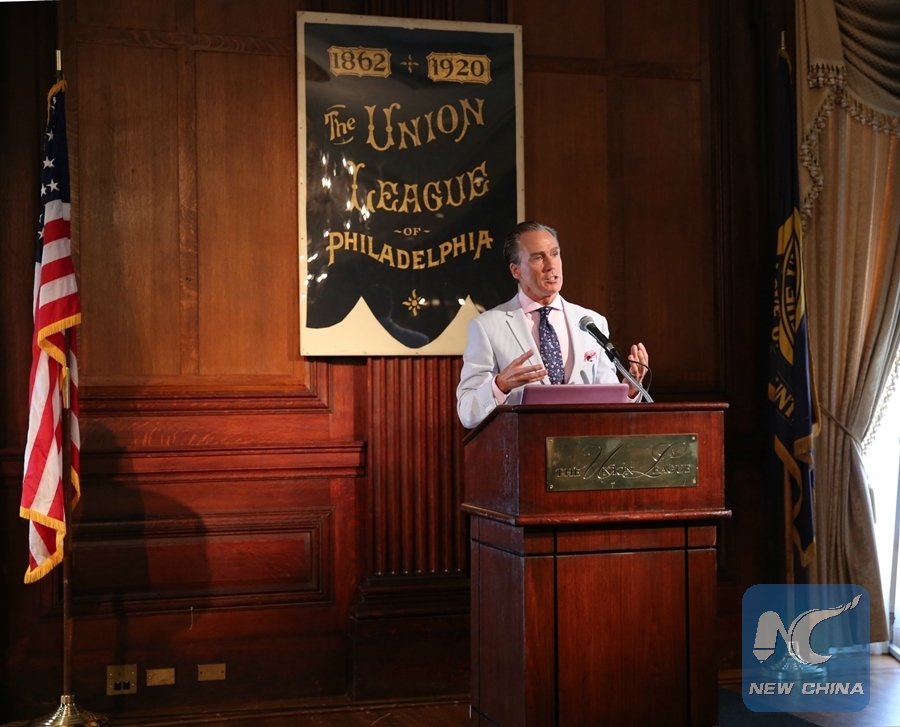
Zhang Qiyue, Consul General of China in New York, the United States, delivers a speech at the China-U.S. Enterprises Philadelphia Luncheon on Trade and Investment cooperation held at Union League of Philadelphia on Aug. 11, 2016. (Xinhua/Liu Shuai)
PHILADELPHIA, the United States, Aug. 11 (Xinhua) -- Against the backdrop of rising anti-trade sentiment around the world, many government officials and businessmen from both China and the U.S. still believed that trade and investment could benefit people from both countries, and called for further understanding and interaction between the two countries.
"If you address the focus of anti-trade, you show them ways how trade is good, positive and productive, and creates ... higher paying jobs, creates more opportunities, enables people to be innovative," Michael Stack, Lieutenant Governor of Pennsylvania, told Xinhua, at an event held by China General Chamber of Commerce-U.S.A.
Stack described the presidential campaign rhetoric about China as "sensational." China and the U.S. do have different views in some areas, but both countries can continue communication to clarify the differences and find common ground for cooperation, he said.
As long as the China-U.S. relationship is fair and benefiting both countries, it's a strong relationship both sides can keep working on, said Stack.
Zhang Qiyue, Chinese consul general in New York, also called on both countries to understand and interact more with each other. A strong and healthy relationship can not only benefit people from both countries, but also contributes stability and development to the world, said Zhang at the event.
Protectionism in the United States is rising, especially in the presidential election year, Xu Chen, president of the Bank of China U.S.A, told Xinhua. But he emphasized that presidential nominees' actions were worth more attention than their rhetoric.
In regard to the rising anti-trade sentiment, Xu said that globalization boosted economy around the world, but did leave some people behind. He suggested improving social safety net to help those affected by the globalization.
With China's economic restructuring going forward, more and more Chinese companies showed great enthusiasm in investing in the United States.

Michael Stack, Lieutenant Governor of Philadelphia, delivers a speech at the China-U.S. Enterprises Philadelphia Luncheon on Trade and Investment Cooperation held at Union League of Philadelphia on Aug. 11, 2016. (Xinhua/Liu Shuai)
Data from the U.S. Commerce Department showed that Chinese investment was the fastest-growing source of foreign direct investment in the United States in 2014. Chinese investment in the U.S. not only created jobs for local economy but also contributed millions of reinvestment to the U.S. market.
In 2013, U.S. affiliates of Chinese-owned firms employed over 37,000 U.S. workers, and invested 449 million U.S. dollars in research and development, said the Commerce Department.
Despite rising Chinese investment in the U.S., Chinese companies are still facing some obstacles, such as frequent national security reviews by the U.S., complicated and uncoordinated policies by U.S. federal government departments, said Xu.
Xu called on companies and government agencies from China and the U.S. to communicate more and build trust to clear these hurdles.

